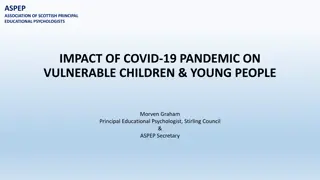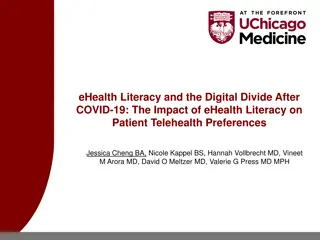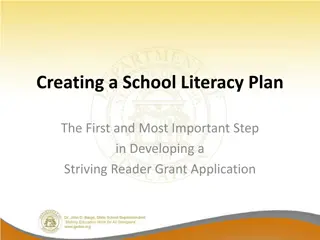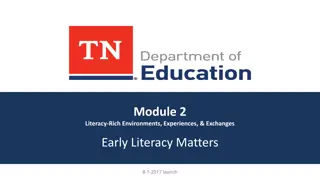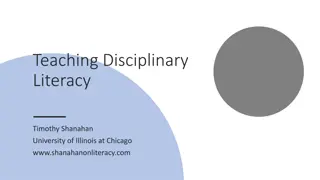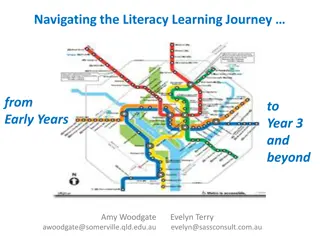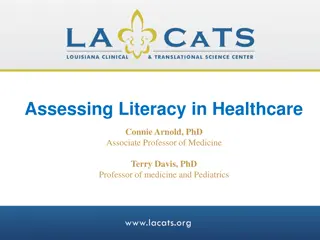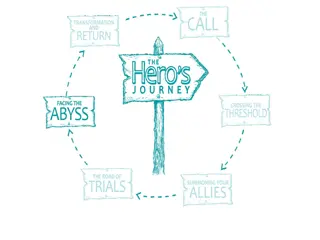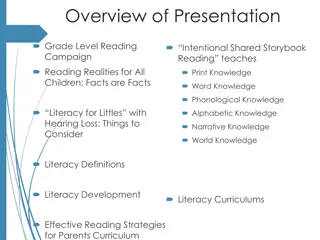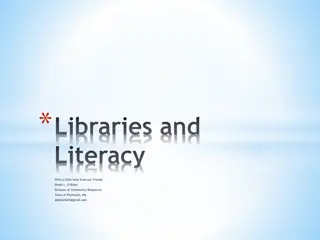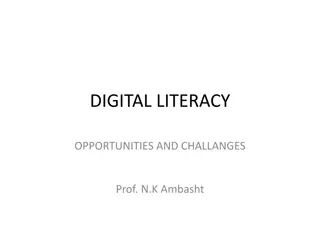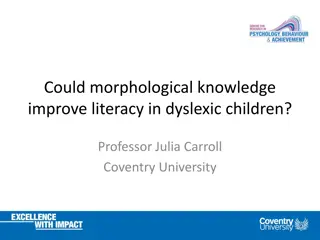Supporting Vulnerable Children through Emotional Literacy
In response to the impact of COVID-19 on vulnerable children, the Emotional Literacy Support Assistant (ELSA) programme aims to provide intensive support focusing on emotional literacy, resilience, positive mental health, and addressing existing social and emotional challenges. Emotional literacy, resilience, and positive mental health are crucial for managing emotions, improving personal power, fostering empathy, and creating a supportive community environment. By promoting emotional intelligence and coping skills, the programme helps children navigate challenges and enhance their overall well-being.
Download Presentation

Please find below an Image/Link to download the presentation.
The content on the website is provided AS IS for your information and personal use only. It may not be sold, licensed, or shared on other websites without obtaining consent from the author.If you encounter any issues during the download, it is possible that the publisher has removed the file from their server.
You are allowed to download the files provided on this website for personal or commercial use, subject to the condition that they are used lawfully. All files are the property of their respective owners.
The content on the website is provided AS IS for your information and personal use only. It may not be sold, licensed, or shared on other websites without obtaining consent from the author.
E N D
Presentation Transcript
Emotional Literacy Support Assistant (ELSA) Programme.
As a response to the COVID crisis, all the schools within the Our Lady Of Lourdes Multi-Academy Trust have been invited to take part in the ELSA training to support the impact of school closures and Covid on our most vulnerable children. As stated by the DFE: School closures put educational outcomes at risk, especially for disadvantaged students. Existing inequalities and attainment gaps are already being exacerbated. School closures cause impairment to the physical and mental health of children. Evidence suggests that the mental health of Years 4, 5 and 6 and early secondary school is particularly affected. Cognitive, social, and emotional developmental outcomes are also at risk as is physical health. School closures have a particularly adverse impact on vulnerable children due to reduced access to essential services. Other lockdown-related stress for children and parents, such as economic uncertainty, are also likely to be exacerbated. The ELSA programme is designed to provide intensive support to these vulnerable children and to provide a long term social, emotional and mental health intervention in our primary schools.
What is Emotional Literacy? Claude Steiner (1997) psychotherapist To be emotionally literate is to be able to handle emotions in a way that improves your personal power and improves the quality of life around you. Emotional literacy improves relationships, creates loving possibilities between people, makes co-operative work possible, and facilitates the feeling of community. 5 Key Elements: 1. Knowing your feelings 2. Having a sense of empathy 3. Learning to manage our emotions 4. Repairing emotional problems 5. Putting it all together: emotional interactivity
Resilience: What does being resilient mean? You can't stop the waves, but you can learn to surf" (Kabat-Zinn 2004) Resilience is the process of adapting in the face of adversity, trauma, tragedy, threats or significant sources of stress. It means bouncing back from difficult experiences. Being resilient does not mean that a person doesn t experience difficulty or distress. (APA.org)
Positive Mental Health What do we mean by positive mental health? Mental health includes our emotional, psychological, and social well-being. It affects how we think, feel, and act. It also helps determine how we handle stress, relate to others, and make choices (Mentalhealth.gov) Mental health problems may well arise when: the demands placed on any individual exceed their resources and coping abilities (World Health Organisation)
Why is Emotional Literacy Important? If you cannot manage your emotions, it is harder to be content, sociable and learn. If we are able to manage our emotions, we are not overwhelmed by them and this links with positive mental health. All feelings are ok, it s what we do with them that matters.
The ELSA Programme: Active Listening Skills and Reflective Questions Using Circle Time Self Esteem and Resilience Belonging and Friendship Skills Understanding and Regulating Strong Emotions Therapeutic Stories Social Communication and Supportive Intervention Loss and Bereavement
The benefits of focusing on Emotional Literacy feel good learn better Raises standards Makes learning more enjoyable Reduces unnecessary stress Turns vicious circles into virtuous circles (Sharp, 2001)
ELSA at St Josephs 2 x trained ELSA within the Teaching Assistants staff (Shelley Bracegirdle and Tracey Whitton) 4 x afternoon blocks per ELSA staff to run small group, individual ELSA sessions and a weekly whole class ELSA session (meaning all the pupils across the year will benefit from the support). Creation of an ELSA space within the Rainbow Room with adequate resources. Children will be assessed at the start of ELSA programme and every 6 weeks there after (for some children dependent on assessment, 6 weeks is sufficient intervention time, for others the ELSA programme may run for several terms). An ELSA report will be presented to Governors annually as part of the SEN review.



